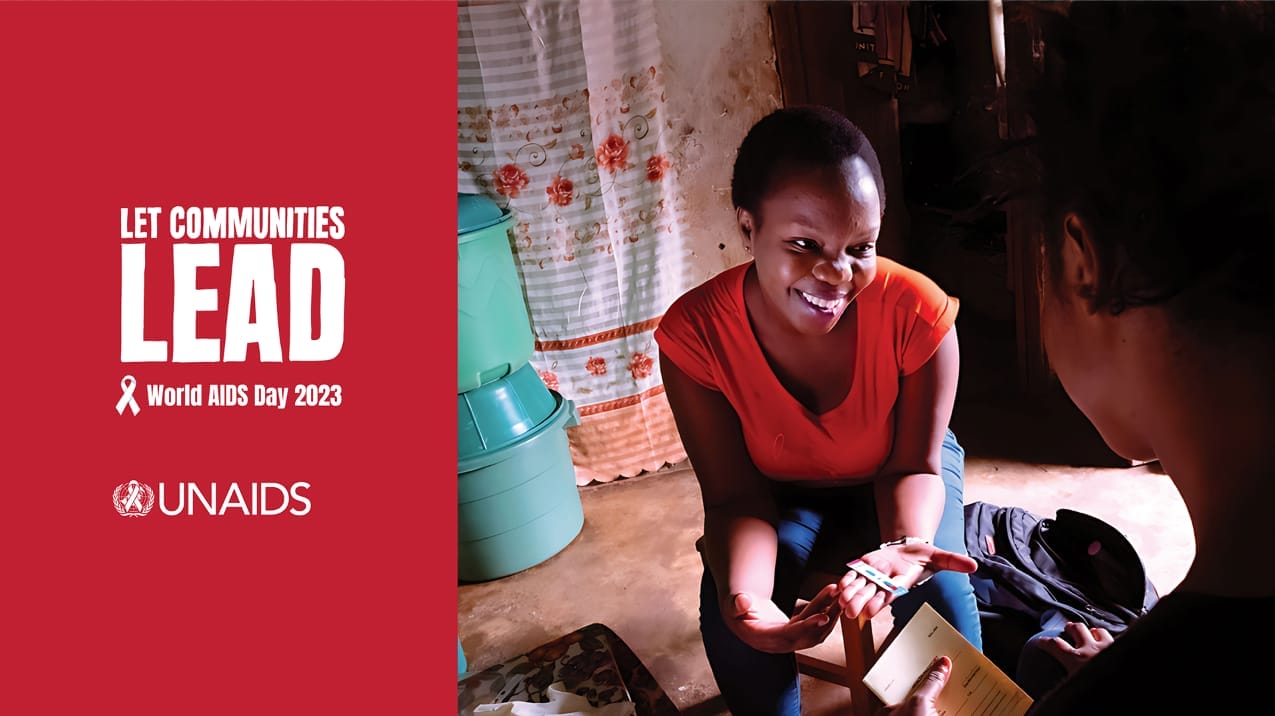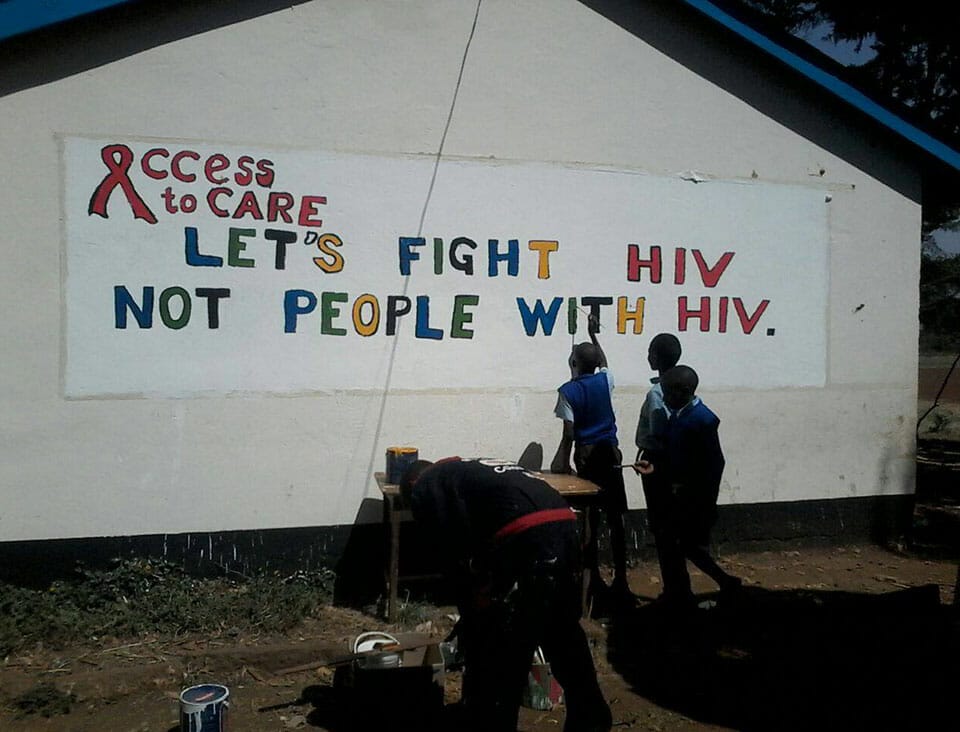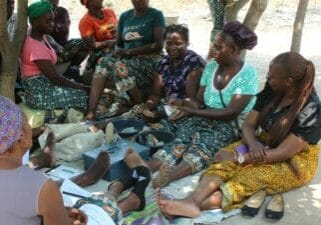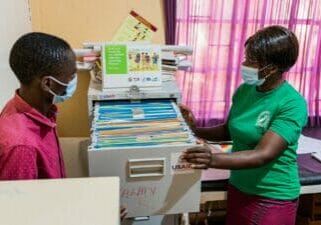News > Blog
Uniting Communities: A Pivotal Force in Combating HIV/AIDS
Published 12/01/2023 by Global Communities

By Betty Adera
As we observe this year’s World AIDS Day, it is crucial to shine a light on persistent inequalities that continue to affect the lives of children, adolescents and young women. Numerous awareness campaigns and other strategies have led to critical advancements during the four-decade long HIV/AIDS global pandemic. However, the role of communities in mitigating the impact of inequalities related to HIV/AIDS cannot be overstated.
In 2022, approximately 130,000 children aged 0 to 9 years old were newly infected with HIV, bringing the total number of children in the same age bracket living with HIV to 930,000. Nearly 85% of these children live in sub-Saharan Africa. Each day in 2022, approximately 740 children became infected with HIV and approximately 274 children died from AIDS-related causes, mostly because of inadequate access to HIV prevention, care and treatment services. Adolescents and young people represent a growing share of people living with HIV worldwide.
Empowered communities play a crucial role in addressing disparities by fostering inclusivity and challenging societal norms that contribute to the marginalization of children and adolescents. By encouraging open dialogue, raising awareness and dispelling myths and stigmas around HIV/AIDS, these informed allies and champions of change provide social networks for acceptance, disclosure, emotional support and safe spaces. This allows for those living with HIV/AIDS to share their experiences without fear of judgment and fosters supportive environments that pave the way for a more effective HIV/AIDS response.

At Global Communities, our core strategy is to center our work on strengthening communities to become a pivotal force in the HIV/AIDS response. To date, our HIV/AIDS programming has reached approximately 400,000 children and 68,000 adolescent girls across Botswana, Zambia, Kenya, Rwanda, Malawi and Honduras.
To continue our progress towards eradicating HIV/AIDS, we are building the capacity of children- and youth-serving community organizations, grassroots women’s organizations, community and traditional leaders, faith-based organizations, primary health care community structures, and local private sector health care service delivery actors. We build capacity through community trainings, mentorship, on the job-coaching and monitoring communities as they voice and address disparities and empower youth through education.
The theme for World AIDS day this year – “Let Communities Lead” – is befitting to celebrate all community-level actors on the frontlines of the collective HIV/AIDS response. Communities are the building blocks of societies, and they play a pivotal role in mitigating the impact of the disease on children, adolescents and young women. Let us unite and collaborate as a global community to ensure a future free from the burden of HIV/AIDS.
Betty Adera is a Senior Technical Advisor for HIV/AIDS and Health at Global Communities.


